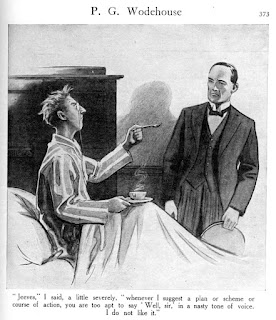The use of AI in the entertainment industry has been the subject of a number of posts here - there's Creative Direction by Numbers and Why advertising may be the last refuge for creativity - and if you put my entire blog through your super-advanced AI platform, you'll doubtless find many more.
I was talking with a friend about the publishing industry recently - and how new novels seem to be identikit these days - from the reviews ("heartbreakingly sad yet life-affirming") through to the interchangeable cover designs. Many new novels seem throwaway and forgettable - with a superficiality and lack of edge that suggests they are the literary equivalent of the selfie.
Films seem to have gone this way a long time ago, and this week, I read an interview with the CEO of corto.ai where, yet again, I got the impression that entertainment is increasingly data-driven, and not necessarily in a good way. The company "have successfully developed a quantitative model of how various narrative structures drive performance for movies, trailers and marketing campaigns." And here, I'm assuming "performance" means pure commercial performance, not awards or reputation won, or whether the film will go into the annals of history as a classic.
Here again, if you look at the entertainment example given on the website, the analysis is all about "what were" and "what have been" - that is, the old rearview mirror method of predicting the future based on the past. A self-perpetuating system.
No creative person needs evidence derived from AI to understand that what people find interesting is a balance between "known" and "novelty" - nor can AI really help you to get this balance right for any particular individual. It's part intuition, part good judgement plus a large sprinkling of luck.
In contrast, another AI agency, discover.ai, presents a different philosophy. Less concerned with Hollywood (although I am sure Hollywood could benefit from this approach) and more with brands, this agency makes it clear that expertise in AI and expertise in people work hand-in-hand. The blog post Why we should embrace bias gives another perspective to the one that suggests bias is a negative in research that AI can help eliminate. It's well worth reading, with some points dear to my heart - "No objective truth", "Data is not reality" and "People make decisions, not data". I particularly like the quote from Gary Smith )"The AI Delusion"):
While computers are very good at discovering patterns in data, they are useless in judging how best to apply them in the real world because they lack human wisdom and common sense.
AI is best used to accelerate and augment human intelligence, not substitute for it.
I'm jolly excited by AI - in the way that I'm far more excited by a springboard than a straitjacket.
GOING FORWARD – MORE PROOF
2 years ago







1 comment:
Hollywood and franchises
https://unherd.com/thepost/globalisation-has-ruined-hollywood/?mc_cid=3248a89611&mc_eid=7decaa2e97
Post a Comment